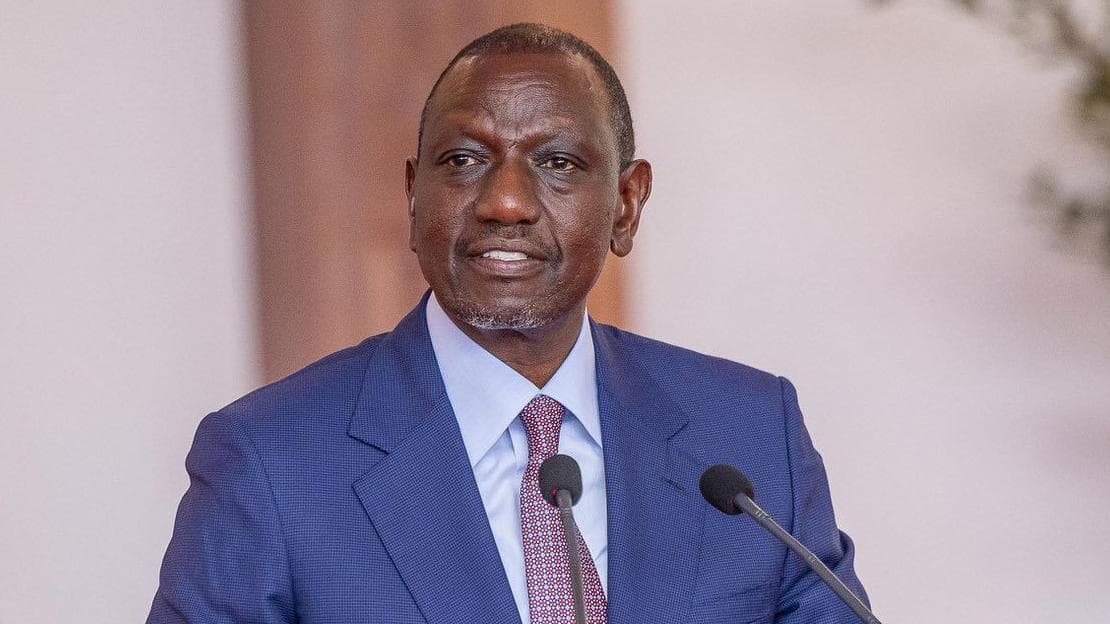We're loading the full news article for you. This includes the article content, images, author information, and related articles.
President Ruto’s remarks on Tanzania's disputed election highlight a democratic divide in East Africa, as Kenyan businesses and rights groups sound the alarm over regional stability and trade worth over KSh 125 billion.

NAIROBI—President William Ruto has publicly questioned the credibility of Tanzanian President Samia Suluhu Hassan’s recent landslide election victory, stating that a 97% win would be impossible in Kenya’s competitive democratic environment. His comments, made during an interview with Al Jazeera on Sunday, November 9, 2025, EAT, cast a spotlight on the divergent political paths of the two East African powerhouses and the potential implications for regional stability and economic integration.
While initially issuing a formal congratulatory message on November 3, 2025, EAT, urging peace and dialogue, President Ruto later adopted a more critical tone. “It’s not for me to judge Tanzania... In a democracy, for example in Kenya, you can never get 96 percent,” Ruto stated, carefully avoiding direct condemnation but drawing a sharp contrast with his own 50.5% victory in 2022. He added, “Democracy is work in progress... there are countries like Kenya that are way ahead, there are others that are catching up.”
President Samia Suluhu Hassan was declared the winner of the October 29, 2025, general election with 97.66% of the vote, according to Tanzania's Independent National Electoral Commission (INEC). The result, however, was immediately contested amid widespread protests and a violent crackdown by state security forces. The election was preceded by the disqualification of major opposition parties, including CHADEMA and ACT-Wazalendo, whose leaders were either arrested or barred from contesting.
International and regional observers delivered damning assessments of the electoral process. The African Union (AU) Election Observation Mission concluded that the elections “did not comply with AU principles... and other international obligations and standards for democratic elections.” The AU report cited an environment not conducive to peaceful conduct, ballot stuffing, and an internet shutdown that compromised the integrity of the vote. The Southern African Development Community (SADC) also noted a “tense and intimidating political atmosphere” and stated that in most areas, voters could not express their democratic will. In stark contrast, the East African Community (EAC) Election Observation Mission, led by former Ugandan Vice-President Dr. Speciosa Kazibwe, was criticized for its muted and overly cautious preliminary statement which merely called for peace and dialogue.
The political turmoil in Tanzania poses a significant threat to Kenya's economic interests. The two nations are major trading partners, with official data showing Kenyan exports to Tanzania stood at KSh 67.2 billion in 2024, while imports were valued at KSh 58.72 billion. On Tuesday, November 4, 2025, EAT, the Kenya Association of Manufacturers (KAM) warned that the instability could severely disrupt this vital cross-border trade. “If there is chaos in Tanzania, it means our businessmen who are exporting their products to Tanzania are not able to access that market and we need to get concerned,” said KAM Chief Executive Officer Tobias Olando. The disruptions have already impacted the flow of goods at key border points.
Kenyan civil society has been vocal in its condemnation. On November 6, 2025, EAT, the Kenya Human Rights Commission (KHRC) issued a statement calling on President Suluhu to step down, asserting she “lacks any legitimacy to lead Tanzania.” A joint statement on November 7, 2025, EAT, by Amnesty International Kenya, VOCAL Africa, and Defenders Coalition condemned the violence and expressed alarm over statements from Tanzanian officials allegedly blaming Kenyans for the unrest, warning this could incite xenophobia. The groups highlighted the killing of a Kenyan teacher, John Okoth Ogutu, in Dar es Salaam on October 29 and the unlawful detention of another Kenyan, Fredrick Lorent Obuya, demanding that the Kenyan government act to protect its citizens.
The crisis in Tanzania, which hosts the EAC headquarters in Arusha, presents a profound challenge to the bloc's principles of good governance and democracy. The starkly different conclusions from the AU and EAC observer missions have raised questions about the EAC's ability to enforce its own democratic standards among member states. President Ruto, in his capacity as a regional leader, emphasized the need to protect democracy without resorting to violence. “We must always give ourselves the opportunity to listen to alternative views without injecting violence into the equation,” he told Al Jazeera. As the region’s largest economies, the political divergence between Kenya and Tanzania could have lasting effects on trade, security cooperation, and the future of East African integration. FURTHER INVESTIGATION REQUIRED into the EAC's internal response to the conflicting observer reports.
Keep the conversation in one place—threads here stay linked to the story and in the forums.
Sign in to start a discussion
Start a conversation about this story and keep it linked here.
Other hot threads
E-sports and Gaming Community in Kenya
Active 9 months ago
The Role of Technology in Modern Agriculture (AgriTech)
Active 9 months ago
Popular Recreational Activities Across Counties
Active 9 months ago
Investing in Youth Sports Development Programs
Active 9 months ago
Key figures and persons of interest featured in this article